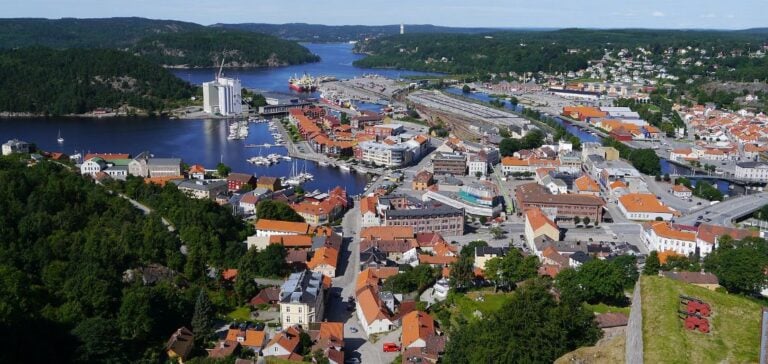A Strategic Project for Energy Security
Norway takes a decisive step towards energy innovation with the identification of a site in Halden to host a nuclear power plant based on small modular reactors (SMR). Halden Kjernekraft AS, in partnership with local stakeholders, has signed a letter of intent to acquire 600 acres (243 hectares) of land for this project.
The proposed plant could include up to four SMRs, offering a total capacity of 1200 megawatts electric (MWe) and an annual production of 10 terawatt-hours (TWh). This initiative aims to address the current energy deficit in the Oslo, Akershus, and Østfold regions, which stands at 16 TWh, while meeting the growing demands of local industries.
A Carefully Evaluated Location
The site, located south of the Haldenvassdraget outlet, was chosen for its favorable geological conditions, proximity to cooling infrastructure, and low population density. These criteria ensure the project’s technical and environmental feasibility.
Norsk Kjernekraft, one of the main partners, emphasized that the design will also include a radioactive waste storage facility inspired by Finnish and Swedish models. This will manage waste generated by the future plant and the decommissioned research reactors in Kjeller and Halden, which were shut down in 2018.
Regional Economic and Employment Impact
The project could become a major economic driver for the region. According to an analysis by Menon Economics, the construction and operation of the plant could generate several hundred local jobs. Additionally, Halden, ideally located between Oslo and Gothenburg, could attract energy-intensive data centers necessary for artificial intelligence development, further solidifying its role in the Nordic technological ecosystem.
A Milestone in Norway’s Energy Policy
Halden Kjernekraft is preparing to submit an assessment request to the Ministry of Energy. The company has also established partnerships with Amentum, based in the United States, and Multiconsult Norge AS for comprehensive technical and environmental studies.
This project is part of a national strategy to develop modern and sustainable energy infrastructure. Halden is the fourth proposed site for SMRs in Norway, following Øygarden, Aure, and Heim municipalities.





















